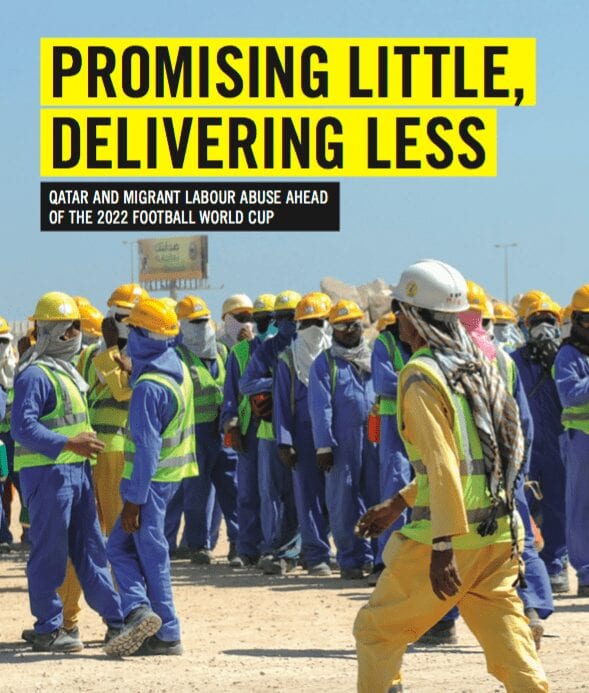
Promising Little, Delivering Less: Qatar and Migrant Labour Abuse Ahead of the 2022 Football World Cup
EXCERPT FROM PUBLICATION:
“A year ago, on 14 May 2014, the Qatar government promised reforms to address the widespread exploitation of migrant workers in the country. The announcement, made following months of pressure on the authorities over conditions for migrant workers, included only limited changes to the exit permit and other aspects of the “kafala” sponsorship system – a system that facilitates forced labour and a range of other abuses. While a move towards reform is welcome, the changes proposed by the government are inadequate and will not address the daily abuse faced by tens of thousands of migrant workers across the country. Moreover, none of the proposed reforms have yet been implemented. On 4 May 2015, Qatar’s Minister of Labour and Social Affairs told a gathering of media that the changes proposed last year would likely be implemented “before the end of this year” – eighteen months after the plan was first announced. This is not the first time such promises have been made. Senior Qatari officials have reiterated their commitment to labour rights reforms over the past year, usually in response to international criticism of the labour rights situation in Qatar. In 2014, Amnesty International identified nine key labour exploitation issues that Qatar should address urgently, based on extensive research into labour exploitation in the country over the past three years. These were:
- the exit permit that allows employers to stop workers leaving the country;
- the restriction on changing employers under Qatar’s kafala system;
- the lack of protection of domestic workers under the Labour Law;
- the practice of late or non-payment of wages to migrant workers;
- fees charged and false promises made to migrant workers by recruitment agencies;
- harsh and dangerous working conditions on construction sites;
- obstacles to access justice for victims of labour exploitation;
- the denial of the right to form or join a trade union;
- and the authorities’ failure to enforce existing labour standards.
This briefing reviews Qatar’s progress on all nine issues identified by Amnesty International, which include the issues on which the government promised reform in May 2014.”
